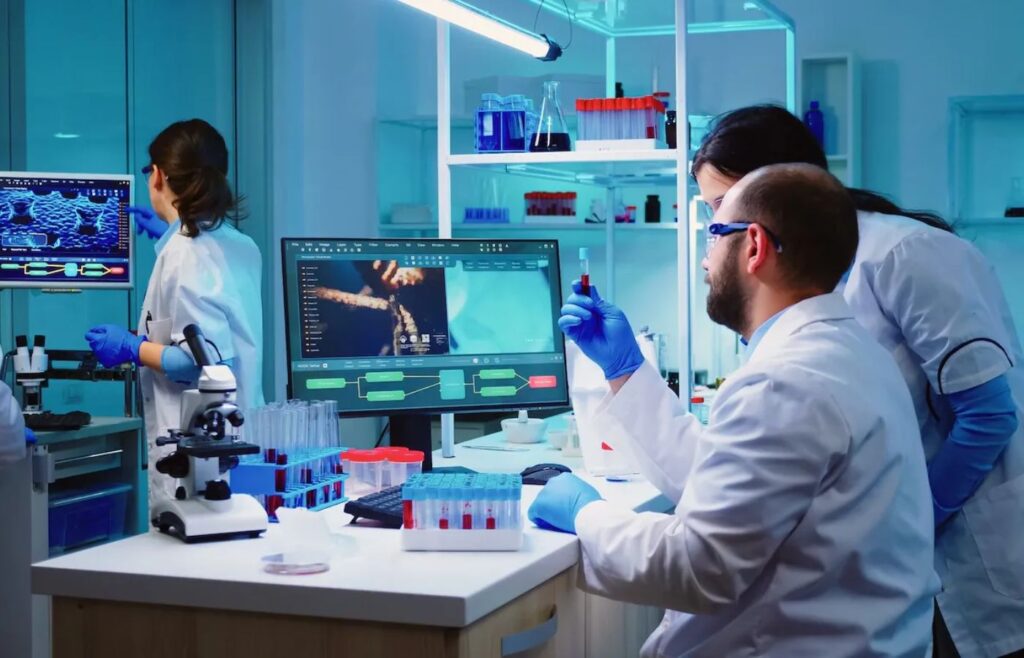Medical Laboratory Technology is at the heart of modern diagnostics, and as healthcare evolves, so does the MLT course curriculum. Whether you’re considering an MLT course after 12th or seeking a diploma upgrade, 2025 brings a host of changes designed to equip technicians with cutting-edge skills. Below, we explore MLT course updates 2025, new trends in MLT, and the future of medical lab technology—so you can stay current and competitive.
1. MLT Course After 12th: Entry Pathways & Enhanced Modules
For many students, the MLT course after 12th remains the most direct route into diagnostic healthcare. Traditional eligibility criteria (science stream with Biology, Chemistry, and Physics) still apply, but institutes are now:
–Introducing bridge modules in bioinformatics and data analysis to prepare freshers for digital lab environments.
–Embedding soft-skill workshops on communication and ethics, reflecting the growing emphasis on patient-centric care.
These MLT diploma course updates ensure that newcomers not only master sample collection and staining techniques but also understand the digital workflows that underpin modern laboratories Diagnopein Paramedical.
2. MLT Syllabus Changes 2025: From Core Diagnostics to Digital Proficiency
The core of Medical Lab Technician skills upgrade lies in a revamped syllabus. Key MLT syllabus changes 2025 include:
- Molecular Diagnostics: Courses now introduce PCR, ELISA, and next-generation sequencing basics in the first year.
- Laboratory Information Systems (LIS): Hands-on training with popular LIS software to manage patient records and test results digitally.
- Quality Assurance & Regulatory Compliance: Expanded modules on ISO 15189 standards and R&D documentation.
These modifications align with industry demand for technicians proficient in both wet-lab procedures and digital data management Diagnopein Paramedical.
3. New Trends in MLT: Point-of-Care Testing & Automation
As healthcare moves toward decentralization, new trends in MLT have emerged:
- Point-of-Care Testing (POCT): Rapid assays such as glucometers and portable blood analyzers are now part of core training, reflecting their pervasive use in clinics and emergency settings.
- Automation & Robotics: Introductory coursework on automated slide stainers and robotic sample handlers helps students interact with high-throughput systems early in their careers.
- AI-Assisted Diagnostics: Basic modules on machine-learning algorithms for pattern recognition in blood smears and histopathology are being piloted in leading institutes.
By integrating trending paramedical courses concepts, these additions ensure graduates can operate—and eventually innovate—within automated lab environments Diagnopein Paramedical.
4. Latest MLT Course Curriculum: Emphasis on Interdisciplinary Learning
The latest MLT course curriculum extends beyond traditional boundaries to include:
- Bioinformatics & Biostatistics: Fundamental programming in R or Python for data analysis, empowering technicians to participate in research and epidemiological studies.
- Clinical Biochemistry Updates: New biomarkers for chronic diseases, such as high-sensitivity C-reactive protein (hs-CRP) and novel cardiac enzymes.
- Emerging Infectious Diseases: Dedicated modules on zoonotic pathogens, reflecting lessons learned from recent pandemics.
This interdisciplinary approach enriches the learning experience and produces versatile professionals ready for diverse roles in diagnostics and research.
5. MLT Diploma Course Updates: Short-Term Certifications & Specializations
To accommodate working professionals, many institutes now offer MLT diploma course updates in the form of:
- Short-Term Certificates: 3- to 6-month courses in specialized areas like hematology, histotechnology, or microbiology.
- Stackable Credentials: Modules that stack toward a full diploma, allowing learners to upskill without committing to a two-year program upfront.
- Online-Hybrid Learning: Virtual lectures paired with on-site practical workshops—ideal for those balancing work and study.
These flexible pathways help current technicians perform a skills upgrade in targeted areas without leaving their jobs.
6. Medical Lab Technician Skills Upgrade: Soft Skills & Lifelong Learning
Beyond technical prowess, the healthcare technician skills 2025 focus on:
- Patient Communication: Training to explain procedures and results clearly, enhancing patient trust and compliance.
- Data Security: Best practices in protecting sensitive health data in line with HIPAA and local regulations.
- Critical Thinking & Troubleshooting: Scenario-based assessments where students diagnose instrument failures or sample quality issues.
This holistic skill set ensures graduates thrive in fast-paced clinical labs and adapt to emerging technologies.
7. Future of Medical Lab Technology: What’s Next?
Looking ahead, the future of medical lab technology promises exciting advances:
- Lab-on-a-Chip: Miniaturized devices capable of running full panels on single microfluidic chips.
- 3D Bioprinting: Custom tissue constructs for drug testing and personalized medicine.
- Advanced Biosensors: Wearable or implantable sensors that continuously monitor biomarkers and transmit data to cloud platforms.
MLT programs are already beginning to introduce elective workshops on these frontier topics, ensuring lab technicians remain at the cutting edge of healthcare innovation.
Conclusion
The MLT course updates 2025 reflect a dynamic interplay between traditional diagnostics and digital innovation. From MLT syllabus changes 2025 and new trends in MLT to medical lab technician skills upgrades and the future of medical lab technology, the curriculum overhaul prepares students and professionals for the next era of healthcare. Whether you’re enrolling in an MLT course after 12th, pursuing diploma course updates, or seeking healthcare technician skills 2025, the road ahead is rich with opportunity.

